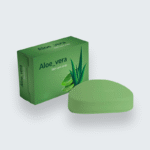The pharmaceutical sector is going through a big change. Emerging technology, more patient-centered approaches, and precision medicines are all making medication research and delivery move at an unparalleled speed. Personalized medicine, biologics, and smart delivery systems are changing the way we fight complicated diseases like cancer. This is most clear in oncology.
Advanced medicines frequently get a lot of attention when it comes to innovation in pharma, but the important role that specialized chemicals and tailored intermediates play behind the scenes is less well known. Companies like Kajay Remedies are filling this vacuum by making high-purity specialty chemicals that are the basis of new drugs, especially in the field of oncology.
The Rising Importance of Specialty Intermediates
Specialty chemicals are very important in the pharmaceutical supply chain because they make it possible to make active pharmaceutical ingredients (APIs), excipients, and sophisticated formulations. These molecules are made for certain uses and have functional benefits including increased reactivity, stability, and selectivity, which make them essential for creating drugs today.
Kajay Remedies is leading the way in this effort by providing a range of important intermediates that help with different parts of drug discovery and development. Some of their best products are:
- 4-Aminophenol
- 2-Nitrophenol
- 4-Nitrophenol
- 2-Chloro Phenyl Acetic Acid
- 2-Hydroxy Phenyl Acetic Acid
Even though these chemicals have simple chemical structures, they are important building blocks for complicated medicines, especially in cancer treatment.
Aminophenols in Drug Synthesis
Aminophenols are phenol derivatives that have amino groups, which make them very reactive and useful. With its ortho structure, 2-aminophenol is a common building block for making APIs, colors, and even polymers. It is also very important for making fluorescent dyes and imaging agents that are used to find cancer.
4-Aminophenol (para-isomer), on the other hand, is a direct precursor to paracetamol and is becoming known as an important step in making oncological medications like cabozantinib, a strong tyrosine kinase inhibitor used to treat kidney and thyroid cancer. Kajay Remedies makes sure that these compounds are made to the highest purity standards, which makes them safe and reliable for usage in medicines.
Nitrophenols and Oncology Applications
2-Nitrophenol and 4-Nitrophenol are two types of nitrophenols that are very important for making dyes, agrochemicals, and more and more, drugs. The nitro group (–NO₂) on the aromatic ring gives it special electrical properties that make it possible to control processes that are important for making chemotherapeutic drugs.
For example, 2-nitrophenol is widely utilized to make compounds that kill cancer cells. It is used as a starting point in multi-step organic syntheses to make anti-inflammatory, antibacterial, and anticancer drugs. 4-Nitrophenol is not only utilized to make 4-Aminophenol in synthetic pathways, but it is also employed in enzymatic assays and biomolecular research, where it is a basic tool for finding new cancer drugs.
Kajay Remedies makes sure that these specialist yet in-demand chemicals are available to drug developers in all markets, with the same quality, purity, and traceability.
Phenyl Acetic Acid Derivatives in Targeted Drug Design
Phenyl acetic acid derivatives, such as 2-Chloro Phenyl Acetic Acid and 2-Hydroxy Phenyl Acetic Acid, are also important intermediates. These chemicals are very important for making both drugs and chemicals used in agriculture.
People often utilize 2-Chloro Phenyl Acetic Acid to make antibiotics and non-steroidal anti-inflammatory medicines (NSAIDs). Its halogenated nature lets it be selectively activated in chemical reactions, which is important for making cancer drugs that need to target certain molecules.
2-Hydroxy Phenyl Acetic Acid is renowned for its role in making anti-inflammatory and antioxidant compounds since it has a hydroxyl group. Inflammation and oxidative stress are two big reasons why tumors grow. Because of this, intermediates like this one are becoming more important in cancer medication pipelines.
Kajay Remedies follows strict quality standards, which means that these chemicals not only meet industry standards but also perform and last longer than expected.
How Kajay Remedies Is Helping the Future of Cancer Treatment
Oncology is quickly evolving toward personalized and precision medicine as a field of treatment. There has never been a greater need for custom APIs and intermediates that work with certain modes of action. More and more drug development platforms are using molecular fragments that are selective and have a high binding affinity. These are properties that Kajay Remedies offers in its portfolio.
Kajay stands out not just because of the variety of products it offers, but also because of its dedication to quality, innovation, and protecting the environment. Kajay makes sure that its products can keep up with the changing needs of pharmaceutical firms throughout the world by having strong in-house research and development, advanced production facilities, and global compliance standards.
Conclusion: A Behind-the-Scenes Catalyst in Pharma Evolution
As drug firms move toward biologics, innovative delivery methods, and personalized therapy, notably in cancer treatment, the need for reliable, high-quality specialty intermediates becomes even more clear. Specialty compounds are the hidden heroes that make novel cancer treatments and gene therapies possible, even if they don’t get as much attention as these new drugs.
Kajay Remedies is still a key player in this change by providing the pharmaceutical industry with high-purity intermediates that are made to order. Their work makes sure that the next generation of cancer medicines is not just new, but also based on a solid foundation of quality, consistency, and chemical accuracy.
Kajay’s dedication to quality helps build the future of medicine, one compound at a time, in a field where every molecule matters.




